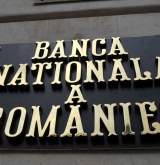Romania�s budget gap remains high
Romanian government wasn’t immune to the crisis, or to the sharp decline in tax revenues, but the plan put in place by the Romanian authorities failed to narrow the budget gap, but only managed to contain it within the target range agreed with the International Monetary Fund.
“The Romanian government has taken a number of steps to try to close the gap in budget revenue, such as ending deductibility on fuel for VAT and personal income tax, as well as imposing a presumptive tax on businesses and a minimum tax on small enterprises. But the budget deficit remains high at around 7.5%”, said Nicolae Done, Senior Tax Partner at KPMG.
However, half of the third and fourth tranche under the rescue package from the IMF (€2.3 billion) will be go to the Ministry of Finance at the end of this month to bridge the budget gap, and the other half will go to the central bank.
Aggressive tax measures lacked effectiveness
"Unfortunately, some quite aggressive measures have also been taken, such as in practice delaying VAT refunds, and these have not been helpful to the business climate. In 2009, there was political instability as well as Presidential elections and elections for the European Parliament. These factors have acted as a disincentive to tough decision making by government. Hopefully 2010 will be a more stable year politically, with a new government now in place, and no elections scheduled,” Nicolae Done added.
After dealing with a serious blow by the recession, small business leaders found out they must pay a corporate income tax of 16%, just because the government had to raise the country’s budget revenues.
The measure forced 15-20% microenterprises to shift to self-employed entities, 25% to pay the new income tax, resorting to other fiscal and financial techniques, while others to consider going under an offshore’s umbrella.
“There has been much speculation about a possible rise in VAT or in the flat rate for corporate and personal income tax. Such steps would be counter-productive as they would slow down the recovery and in turn have a negative impact on budget revenue. Instead, the government should concentrate on more efficient revenue collection to tackle the underground economy, which by most estimates remains substantial,” said Mark Gibbins, Tax Partner and Head of KPMG in Romania’s Tax Department.
For example, tax audits should be more carefully focused on companies and individuals who present a high risk of tax evasion, rather than being carried out randomly as at present, Gibbins concluded.
Budget deficits, Europe�s No 1 threat
The Greek government has committed to narrow the budget to 8.7% of GDP this year and to 3% in 2012.
“Governments worldwide have been faced with a dilemma when deciding how to respond to the downturn. The recession has meant less revenue coming in through taxation, leading to shortfalls in the budget. So some countries have reacted by raising taxes. However, increasing the tax burden can also have negative effects- deepening the recession by reducing individuals’ disposable income, or companies’ budgets for investment. So in other countries, governments have reduced taxes to stimulate recovery”, Valentin Tic, Tax Partner at KPMG in Romania pointed out.
For example, in the UK, the Value Added Tax was temporarily reduced from 17.5% to 15% between 1 December 2008 and 1 January 2010.
























































![HR [PLAY] Tech Workout - 11...](https://www.wall-street.ro/image_thumbs/thumbs/973/973fe0a3888d417feff63de42e814180-260x260-00-65.jpg?v=1713985726)










